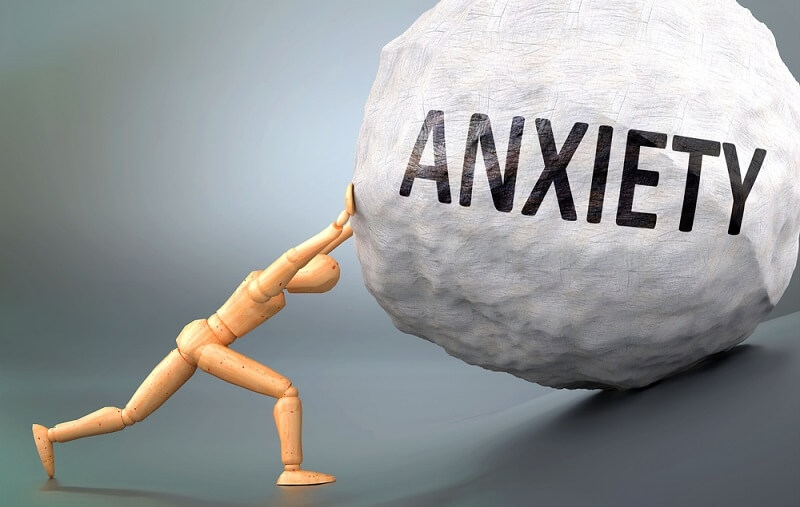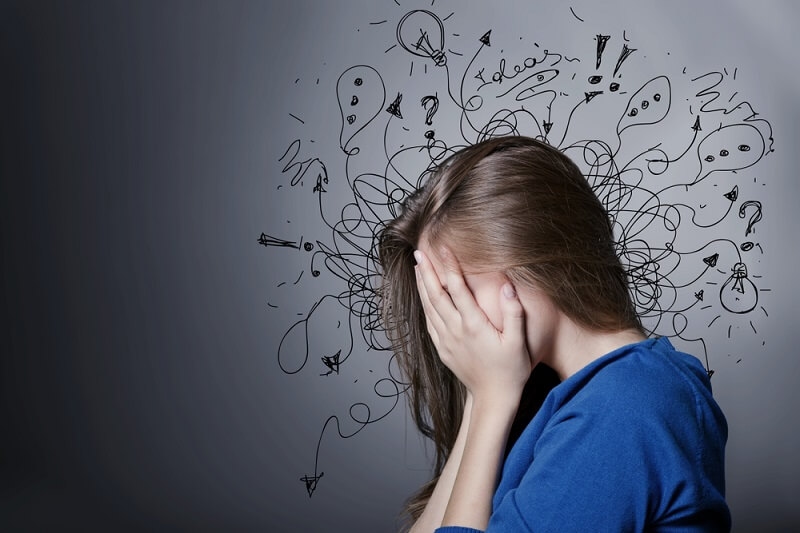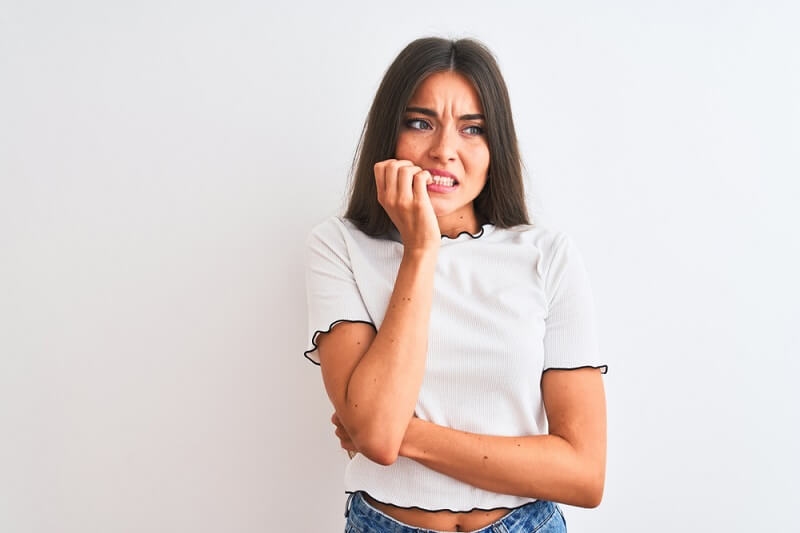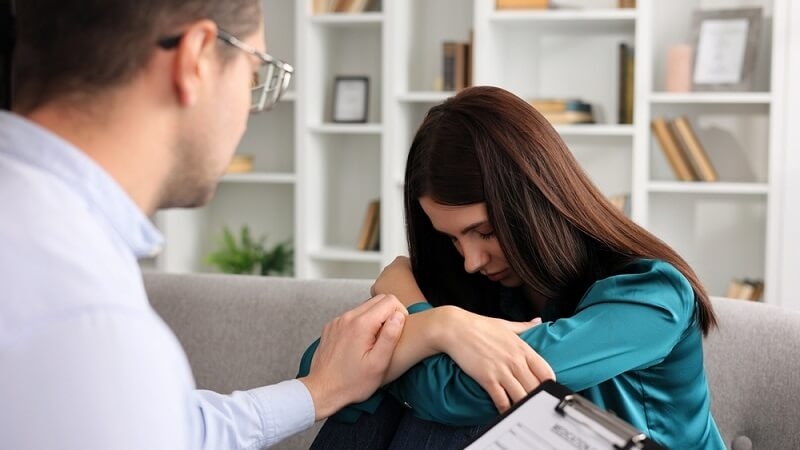Discovering The Effects Of Anxiety And How To Treat Them

Anxiety is a common and natural human response to stressors and uncertain situations. It's that fluttering feeling in your stomach before a big presentation, the racing heartbeat before a job interview, or the heightened alertness when faced with danger. There are numerous stages of anxiety, and how our body controls these urges from time to time. If the responsiveness to anxiety is not trained or managed, it may lead to anxiety disorders which could be fatal to your mental and physical health. Lets understand the entire premise of anxiety and its effects for a better solution for creating the proper limitations for these urges.
What is Anxiety?
Anxiety is an emotional and physiological response to perceived threats. It's the body's way of preparing to respond to a situation perceived as dangerous or uncertain. Anxiety is a survival mechanism that has evolved to help us anticipate and react to potential challenges. Anxiety keeps our receptors active and gives us a better judgment of our protection in every way possible. Our body, however, is not naturally capable of controlling the amount of anxiety. It is a psychological construction that we develop over time, and if not handled well, the anxiety could overpower our lifestyle.
What are Anxiety Disorders?
When our body's anxiety level exceeds the limit or the healthy threshold, some conditions progress and develop after these stages. These anxiety disorders reflect the excessiveness of unease, fear, and other anxiety-related behaviors. These disorders can significantly impact your daily life, relationships, and well-being. They often go beyond the everyday experience of anxiety and can be debilitating if left untreated.
Types of Anxiety Disorders

Generalized Anxiety Disorder (GAD)
This disorder is caused by excessive worry about everyday life events resulting in restlessness, muscle tension, and difficulty concentrating. GAD often occurs when the anxiety has risen slightly above the surface level.
Panic Disorder
Heavy anxiety episodes cause this disorder and focus on the bodys reaction to the anxiety. Under this disorder, you will suffer panic attacks as an outburst of fear and intense fear-striking notions. This type of panic affects mental and physical health, like heartbeat racing, increase in blood pressure, breathlessness, and paranoia.
Social Anxiety Disorder (SAD)
SAD is characterized by an intense fear of social situations and a constant worry about being judged or humiliated in public. In this disorder, individuals cannot carry themselves around others because of their continuous paranoid mind and prefer being alone.
Specific Phobias
These are intense and irrational fears of particular objects or situations, such as heights, spiders, or flying. The anxiety causes one to think about the potential harm that the environment can do and might develop these fears for things that may have affected them.
Obsessive-Compulsive Disorder (OCD)
OCD involves unwanted and intrusive thoughts (obsessions) that lead to repetitive behaviors (compulsions) to reduce anxiety. These are the reactions of anxious people who must perfect everything to avoid outbursts.
Post-Traumatic Stress Disorder (PTSD)
Triggered by traumatic events, PTSD can cause flashbacks, nightmares, and severe anxiety. These often are more of a leftover reaction in the body from the previous occurrence of the anxiety episodes.
What Causes Anxiety Disorders?
Genetics
A family history of anxiety or other mental health disorders can increase the likelihood of developing an anxiety disorder. This is because of the environment that an individual is brought up in, which might influence their behavioral aspects.
Brain Chemistry
Imbalances in neurotransmitters, the brain's chemical messengers, can contribute to anxiety disorders. These conditions explain the biological imbalances in the body that involuntarily cause these episodes.
Environmental Factors
Traumatic events, childhood adversity, or chronic stress can increase the risk of developing an anxiety disorder. These include specific events or repetitive traumas fed to the brain that develop into anxiety.
Personality Traits
Certain personality traits, such as perfectionism or a tendency toward negativity, can make individuals more susceptible to anxiety. They represent the standard of brain functioning that cannot be stable unless the conditions are met.
Symptoms of Anxiety Disorders

Excessive worry
Feeling worried or anxious most of the time, often about things that are unlikely to happen. If you see yourself or someone else tensed or worrying about even the tiniest things, you should consider it anxious behavior. When emotional wellness and mental health are not optimum, they can cause anxiety.
Physical symptoms
These can include a rapid heartbeat, trembling, sweating, dizziness, and stomach issues. People who are perfectly fit and still have problems like these might be caught under their anxiety disorders. It is better to reach out and try to help by connecting them to a professional psychologist.
Avoidance
Trying to avoid situations or places that trigger anxiety could also be a symptom. In these circumstances, the individual faces difficulty being around, resulting in their immediate reaction to leave.
Restlessness
Feeling on edge or unable to relax is an easy-to-spot symptom of anxiety. This might be very commonly found in individuals who have an overthinking habit or are influenced by a consistently rough lifestyle.
Irrational fears
Experiencing intense anxiety about objects, animals, or situations. These could be because of a history with the individual who carries a troubled past. This often develops into anxiety, making them uncomfortable and fearing things.
Diagnosing Anxiety Disorders
Mental Health Professional
Diagnosing anxiety disorders involves a comprehensive assessment by a mental health professional.
Physical Examinations
The criteria for diagnosis often include the persistence and severity of symptoms tested through physical examinations.
Psychological Evaluations
These evaluations focus on ruling out any underlying cause of the anxiety surfacing or the connection between your reaction to anxiety.
Treating Anxiety Disorders

Therapy
Cognitive Behavioral Therapy (CBT) is a common approach that helps individuals identify and challenge negative thought patterns and behaviors. Exposure therapy is particularly effective for phobias and OCD.
Medication
Antidepressants, anti-anxiety medications, and beta-blockers can help manage the symptoms of anxiety disorders. There are certain CBD products prescribed by professionals that reduce anxiety.
Lifestyle Changes
Regular exercise, a balanced diet, the power of soothing sleep therapy, and stress-reduction techniques like meditation and yoga can contribute to managing anxiety.
Eco-anxiety:
This term refers to the distress and anxiety caused by concerns about environmental issues such as climate change, deforestation, and pollution. The realization of the impact of these issues on future generations can lead to a heightened sense of worry and helplessness.
Conclusion
anxiety is a normal human response, but when it becomes overwhelming and interferes with daily life, it can develop into an anxiety disorder. The mind is a complex part of human behavior that responds to the environment and everything in it. When the body is affected by something, or the mind finds it difficult to comprehend a happening, it causes anxiety. These disorders are treatable through therapy, medication, and lifestyle changes like having the correct type of diet and food for fitness. If you or someone you know is struggling with anxiety, seeking professional help is crucial to regaining control and finding relief.
This content was created by AI
-1717753922-r.jpg)